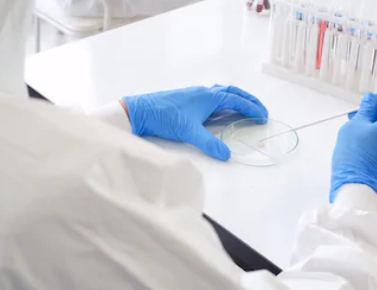Autophagy is a lysosomal-dependent degradation pathway widely existing in eukaryotic cells. Its activation involves the formation of autophagosomes, the transport of autophagic substrates and their degradation in autophagic lysosomes. Creative Bioarray provides several dynamic detection services to study autophagy.
In recent years, more and more researchers have realized that simply observing the number of autophagic lysosomes is not enough to judge the changes of autophagic flux, and detecting the degradation of long-lived proteins can be a good evaluation of the changes of autophagic flux.

Intracellular proteins are mainly degraded through two pathways, the proteasome pathway and the autophagy pathway. The proteasome pathway is mainly responsible for the degradation of short-lived proteins, while the long-lived proteins and some organelles are mainly degraded through the autophagy pathway. Under pathological conditions, the obstruction or over-activation of autophagy will cause abnormal degradation of long-lived proteins, which will result in the failure to maintain the normal function and morphology of cells.
Dynamic detection can not only prove the existence of autophagy, but also reflect the entire dynamic process by detecting the degradation rate of autophagic proteins or the accumulation of autophagosomes. Our services include but are not limited to:
Long-lived Protein Detection Service
Observation of autophagy protein degradation is a previously established method for dynamic quantitative analysis of autophagy. Generally, radioactive amino acids are incorporated into cellular proteins, and protein degradation is quantified by detecting radiolabeled amino acids.
Experiment Process
Advantages
This method has low specificity and cannot distinguish between autophagy-dependent degradation and independent degradation. Therefore, it is usually necessary to add lysosomal antagonists, such as chloroquine, ammonium chloride and Baf A1. The specificity of this method was investigated by analyzing the release of isotope-labeled amino acids before and after adding the antagonist. Although this method has shortcomings, it can still accurately measure the amount of residual radioactive protein. Combined with other autophagy detection methods provided by Creative Bioarray, your research results can be more accurate and reliable.
The time depends on the experiment content
If you are interested in our services, please contact us for more detailed information.
Online Inquiry